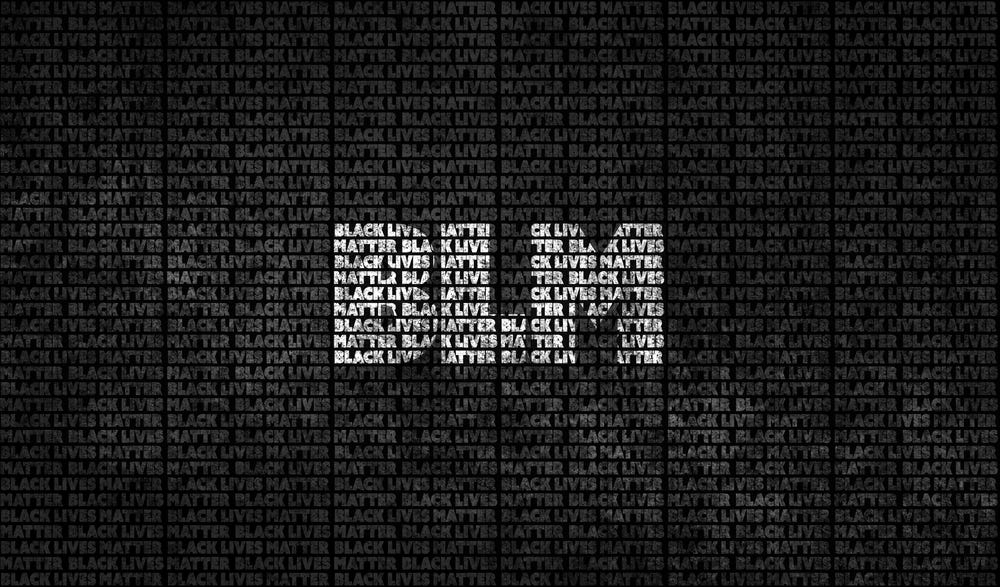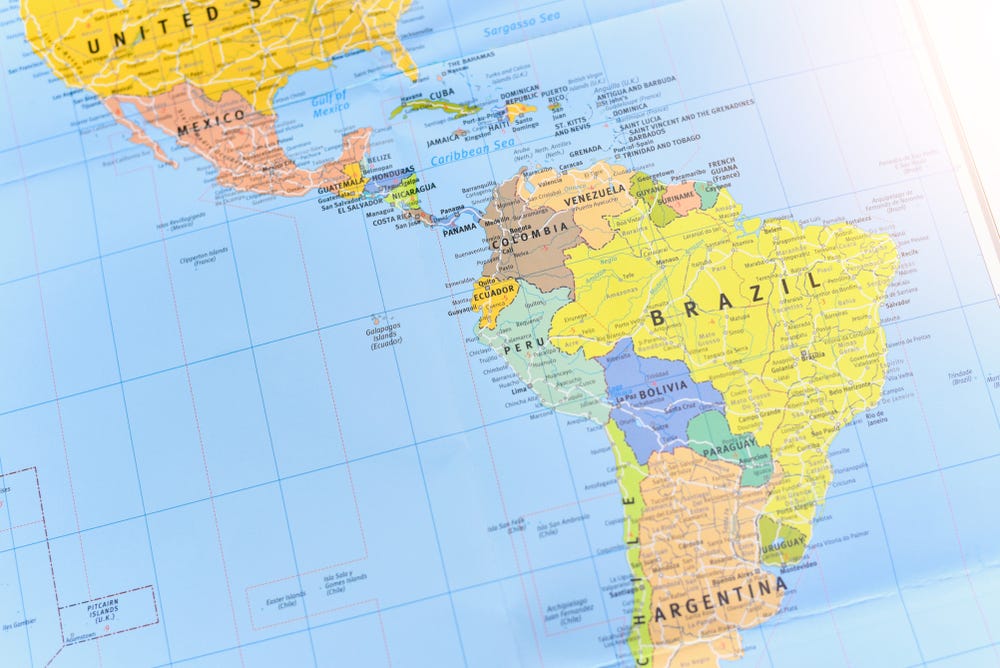E-Pluribus | February 3, 2022
The hidden strength of America, Black Lives Matter expands its agenda, and Latin America gets woke.
A round up of the latest and best writing and musings on the rise of illiberalism in the public discourse:
Walter Russell Mead: America Is Stronger Than It Looks
Writing at The Wall Street Journal, Walter Russell Mead says that the decline of the United States on the world stage has been greatly exaggerated. Mead argues that the country remains a pro-democracy force in the world and that recent moves by China and Russia have shown our alliances remain strong in the face of authoritarian aggression.
That post-1945 system [a global economic order backed by U.S. military might] proved resilient and effective, brushing back the Soviet challenge, providing for the integration of postcolonial countries into an expanding world economy, preventing major great-power wars across seven decades, and bringing both Germany and Japan into the system as “responsible stakeholders” in a world order they had once tried to destroy. After the fall of the Soviet Union, American policy makers hoped to extend that system further, with Russia and China joining Germany and Japan among the principal pillars of an American-led but internationally responsive world order. At the same time, Americans sought to purify and elevate a world order that no longer faced hostile communist rivals, with a greater emphasis on human rights, women’s equality, democracy promotion and such transnational issues as climate change and migration.
That post-1990 version of the 1945 project has hit a wall, with Russia and China categorically refusing to accept the American vision of a post-Cold War world. With American opinion increasingly divided over basic elements of our world-order-building strategy ranging from free trade to global security guarantees and the place of such issues as climate change and LGBTQ rights in American foreign policy, it is growing harder for presidents to summon the domestic support for energetic foreign policy even as the global situation turns grim.
[ . . . ]
The factors making for the long-term success of Anglo-American order building are still present today. An open society and competitive business climate promote the technological progress and economic growth that underwrite our foreign policy. As a global sea power interested in preventing large land powers from dominating either Europe or Asia, Americans are the natural allies of smaller states seeking to protect themselves against the ambitions of aspiring hegemons like China and Russia. Overbearing Chinese policies in the Indo-Pacific have strengthened U.S. alliances there, and Russia’s threats to Ukraine are reinvigorating the North Atlantic Treaty Organization and reminding Europeans why Washington, warts and all, is a good ally.
Read the whole thing.
Ryan Mills: BLM ‘Week of Action’ Teaching Students Nationwide to Affirm Transgenderism, Disrupt Nuclear Family
Black Lives Matter is quickly following its social justice/civil rights predecessors on the left as it adopts the intersectionality template. Rather than keeping its focus on racial issues surrounding policing, the program it designed for schools includes “transgender affirming” principles and deemphasizes the nuclear family, writes Ryan Mills at National Review.
Black Lives Matter at School offers kid-friendly versions of the 13 principles designed for elementary and middle-school students.
The Week of Action also includes a list of four national demands: end zero-tolerance discipline policies; mandate black history and ethnic studies; hire more black teachers; and fund counselors, not cops, according to a “starter kit” on the Black Lives Matter at School website.
In the starter kit, New York City kindergarten teacher Laleña Garcia, author of a children’s book about BLM principles, writes that while “discussing big ideas with little people” it is necessary to “consider age-appropriate language so that our students or children can grasp the concepts.” For example, she suggests not talking about police violence with “our youngest children.”
When discussing BLM’s principle of being transgender affirming, Garcia offers the following kid-friendly language: “Everybody has the right to choose their own gender by listening to their own heart and mind. Everyone gets to choose if they are a girl or a boy or both or neither or something else, and no one else gets to choose for them.”
When discussing the BLM principle of a “Black Village,” which includes the goal of disrupting the Western nuclear family structure, Garcia suggests teaching kids that “there are lots of different kinds of families; what makes a family is that it’s people who take care of each other; those people might be related, or maybe they choose to be a family together and to take care of each other. Sometimes, when it’s a lot of families together, it can be called a village.”
Read it all.
Simón Ganitsky: “Woke” Politics Comes to Latin America
The left has had a solid foothold in Latin America for a long time, but at Persuasion, Simón Ganitsky, a PhD student at Columbia University, says the recent upheaval in the United States is affecting our neighbors to the south as well. While acknowledging the legitimate grievances of the people, Ganitsky says that “wokeness” is bringing a new emphasis on identity as either oppressor or oppressed that will further divide rather than provide solutions for the long-term problems in that region of the world.
It seems “wokeness” is a fashion that has spread from the United States to countries like Colombia—and has found a receptive environment among the Latin American left. The tenets of the new progressivism resonate in a region where anti-colonialism and the fight against oppression have long defined leftist politics. The left decries American influence in the region as a continuation of the subjugation of their countries; they claim (not entirely without justification) that after achieving independence from Spain, Latin American elites were unwilling to transform the social structure inherited from colonial times, and later allowed for new forms of colonial oppression by other foreign powers.
Now this anti-colonial struggle has been transformed by the contemporary notion of identity. This explains why, next to Columbus, the conquistadors, and the Catholic Monarchs, the statues of heroes of Colombian independence have been targeted too—figures such as Francisco de Paula Santander, a liberal and one of Colombia’s first presidents, and Simón Bolívar, the liberator of what currently are Colombia, Venezuela, Ecuador, Peru, Bolivia, and Panama. According to some surviving indigenous groups, many Colombians of Spanish descent who fought for independence perpetuated the oppression of their people after the end of Spanish rule. They are considered “the heirs to the genocidal legacy […] of European, capitalist, military, Christian, patriarchal and white colonization.”
At the same time, indigenous people in many Latin American countries are treated as possessing a morally superior identity and “ancestral memory and wisdom,” and are put at the front of the political struggle by parts of the left. If the real victims of history in Latin America want to remove the statues of the people who fought for independence, then, according to many activists, that is the morally right thing to do.
That’s not to say that indigenous people in Colombia and elsewhere aren’t the victims of terrible past and present crimes—but it is a large jump from observing that fact, to taking it as the comprehensive identity of the people in question, to finally deriving moral righteousness from it. Now more than ever there’s a climate, mostly evident in social media, in which everything Western reeks of colonialism, and must be rejected as a form of oppression. We, Latin Americans, are expected to be ashamed that we speak a European language, and that our culture is mostly Western. And if you read, say, Don Quixote, and not the Popol Vuh, be prepared to offer a convincing justification, and to condemn the imperialism you’ll find in Cervantes’s writing.
Read it all here.
Around Twitter
Via Patrick Brown, census figures on intact families by racial groups, with commentary by Andrew Sullivan and Wesley Yang:
There’s a new podcast from Winston Marshall, the English folk rocker who left his band this summer over backlash from a… tweet (see “Around Twitter” here.) On his first episode, he hosts Aleksandr Solzhenitsyn’s son, and Bari Weiss is a fan:
Via Glenn Greenwald, a fascinating result from a Pew Research Center survey:
And finally, via Wenyuan Wu, the Wheel of Power/Privilege:











